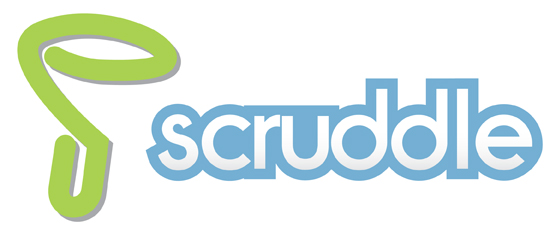Featured Startup on Azure - Scruddle
Scruddle is a pre-revenue startup based in Fort Worth, Texas. It was founded in 2012 by Mark Doyle, who designed and developed virtually all of the website and underlying product. In 2013, Matt Gutierrez, Adrienne Hisbrook, and Noel Melendez were brought on to design and develop the iOS and Android mobile apps, and to improve the user interface and experience.
Scruddle is a single platform - mobile app and website - for managing your digital information. It allows you retrieve all of your social feeds - Facebook, Twitter, Google+, Foursquare, and more - plus your email and news feeds, so you can view them together, search and organize them. And, you can even publish or share back to your social networks, and through your email accounts.
Scruddle is built on Windows Azure (Cloud services, table & blob storage, message queues), with ASP.NET MVC4 and WebAPI. It was developed with C#, .NET 4.0, and Visual Studio 2012. It takes advantage of the Microsoft Enterprise Library for logging and exception handling, and soon, for auto-scaling.

Mark Doyle, President & Founder, Scruddle
Do you build for scale first, or for revenue? How are those things related in your mind?
A business has to be built for revenue - that’s the ultimate goal. Scalability is one of the strategic decisions which aid in that revenue goal. A system that scales well and affordably will lead to revenue (and profitability) more quickly.
The Scruddle business model is built for long-term revenue, while the product, or the implementation of that business model, is built to scale.
Do you make reasonable predictions about how you are going to achieve revenue and then test them out, or do you start with a business model and deploy it, to see if it brings in revenue?
Many start-ups begin with a cool idea, then build and deploy it quickly, hoping that revenue will come (and pivot if revenue does not result).
Scruddle, however, was planned and developed more cautiously, based on reasonable assumptions and predictions for achieving revenue. Scruddle is based on the premise that its platform for managing digital information will generate revenue, based on observations from active and acquired competitors.
What questions do you think a startup non-technical founder needs to answer when considering a cloud architecture for his or her startup, and I am thinking specifically here during the business model generation period?
Any founder, technical or not, needs to ask these questions:
-
- Am I considering cloud architecture because it is the latest fad, or does it allow my business to leverage scalability, flexibility, or cost benefits?
- Are the cloud service providers I am considering going to be around in 1 year, or 5 years? Do they offer reliable service and support?
- How will my business, website, or software handle sudden success (e.g., the “Slashdot effect”)?
- Does my development or engineering team have the skillset to build on a cloud architecture, and do they fully understand it?
What questions do you and your technical co-founder / engineering team feel are the most important to solve about the business aspects of your company?
The questions vary by type of business, but boil down to: Does the solution being built solve the needs of the targeted consumer?
Scruddle is designed to benefit consumers that consume social media, email, and news on their smartphones and tablets; of course a mobile app has to be developed first. The engineering team must then solve the problems to make that possible - account management, data storage, REST API, etc.
Where do you include technical members of your team during the building of your business plan?
In a tech start-up such as Scruddle, technical members must be at the forefront of the business plan. If they are not contributing to the ultimate business goals and strategies, than they must at least be involved in deciding how the goals and strategies will be implemented, and detail the resources and costs required.
When did you decide that you were “startup material”?
I was actually looking for a product that I needed, before I came up with the idea for Scruddle. I wanted a mobile app to easily manage my social media, news, and potentially email, and was dissatisfied with what was available. I then wondered how difficult it would be to build my own, and how would mine be better than what was out there. It was then I realized that the concept had the potential for success. And so Scruddle was born.
What are some of the challenges you face as a founder or developer at a startup, when it comes to dealing with family life, or socially? Does working on a startup change the way you associate and interact in these areas?
Time (or lack of it) has been the ultimate challenge. I have been developing the software and working on the business, all the while holding down a full-time job, and also trying to be a good husband and father.
Sure, it would be easier if I were holed up in my mom’s basement for a few months to finish development, but I’d rather have my life and figure out how to make it work.
What characteristics do you possess that make you an entrepreneur? What makes your startup a startup?
I think an entrepreneur is always looking at the world just a little differently, asking if things could be done better or faster, or at all. I definitely have that characteristic, evaluating things in life to see if there is a business opportunity available.
Scruddle is pre-revenue, so that makes it a true startup… right?
Can you describe the relationship that you have had with Microsoft in building your startup?
I have been developing with Microsoft technologies since I graduated from college in 2000. As that was my area of expertise, building Scruddle with the tools I knew was a no-brainer.
Why would an entrepreneur turn to Microsoft for help in building scale, a team, or using software?
Microsoft has succeeded by making developers successful with solid tools and platforms, which translates to business technology success. With BizSpark, entrepreneurs instantly have access to steeply discounted development tools and software; they have access to Windows Azure, which gives them the ability to build cheaply scalable products. Again, this is a no-brainer.
Tell us about your Azure based solution.
Scruddle is a single platform - mobile app and website - for viewing, searching, organizing, and sharing your digital information. It allows you retrieve all of your social profiles - Facebook, Twitter, Google+, and more - plus your email and news feeds, and publish or share back to your profiles.
Scruddle funnels enable you to organize information in the way that makes most sense to you. With profile funnels, you can merge your Facebook and Twitter feeds with your personal email, or merge your LinkedIn and work email, or any combination you need. With contact funnels, you can view status updates for one or more individuals, regardless of whether they came from Facebook or Google+.
How is Azure implemented in your solution?
Scruddle uses a combination of web and worker role cloud services, message queues, blob storage, and table storage. The ASP.NET MVC 4 website and WebAPI are hosted with web role cloud services. 3rd party services, such as Facebook and Twitter, are accessed asynchronously by worker role cloud services, and are notified by messages in the Azure message queues. Worker role cloud services are also used to index messages and contacts for searching, populating the Lucene.Net search index which resides in Azure blob storage. Virtually all data is stored with Azure table storage, except for larger images, articles, and attachments, which are stored in blob storage.
How did you get excited about Azure?
Azure is exciting for .NET developers, because the same applications can almost always be migrated to Azure. For an entrepreneur, the potential cost savings and scalability are very sexy.
What were the Azure features that prompted you to decide to build on Azure?
Two key issues prompted the decision to build Scruddle on Azure: storage and scalability. Knowing the sheer volume of data that exists with social media and digital information, a no-SQL storage option was required. As a pre-revenue startup, Scruddle also had to affordably reside on an infrastructure that could scale if needed, without having to buy or lease unused hosting services. Azure provides all of these benefits, and supports the .NET platform on which Scruddle would be developed.
What advice do you have for companies that are thinking about building in the cloud?
Plan ahead. It’s that simple. The cloud, and Azure in particular, is not for every solution. Do your hardware needs justify an on-premise solution, and all the costs associated with that? For storage, will the SQL Azure limitations be enough and will SQL reporting services be required, or is table storage more feasible?
